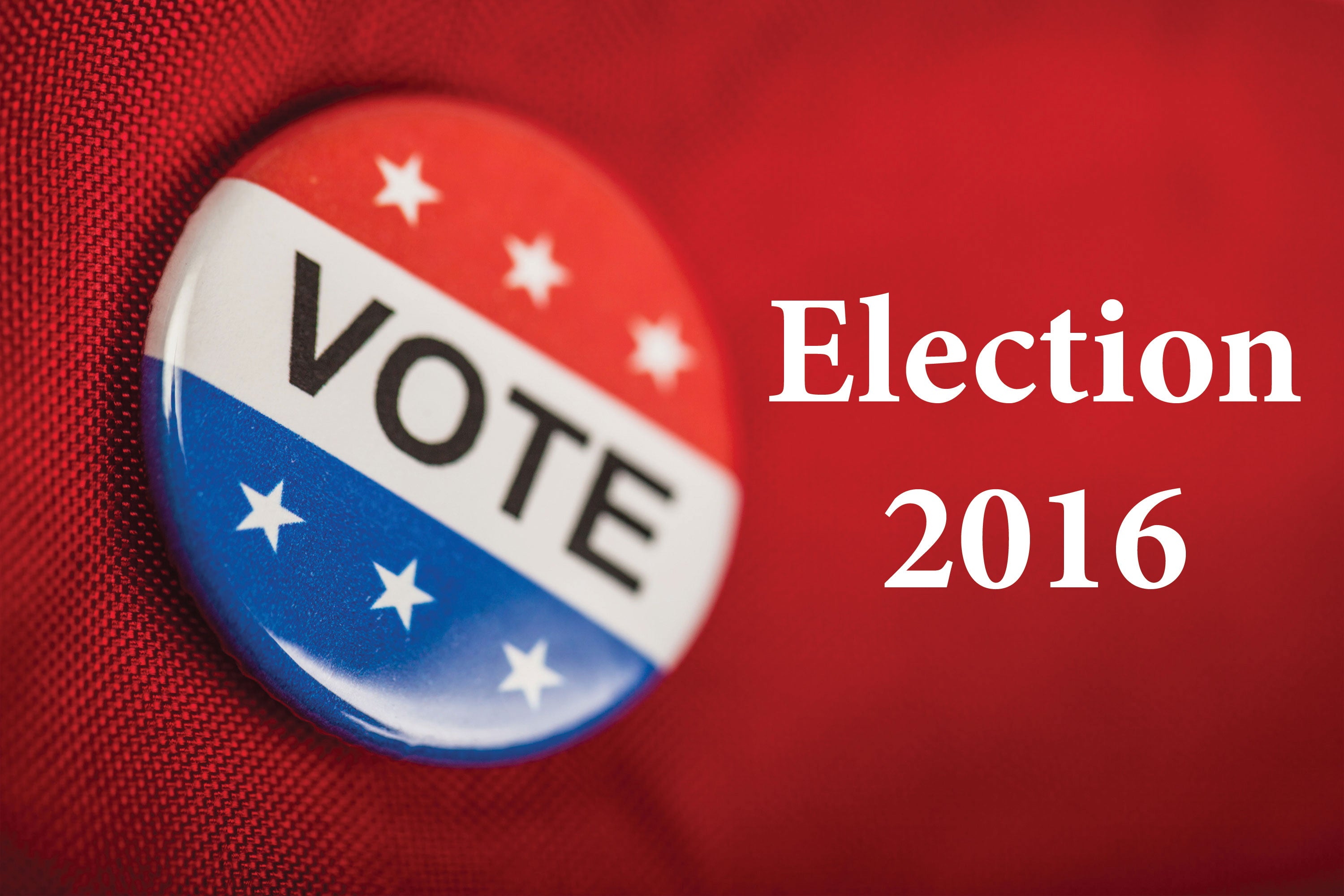Field of 6 vying for 4 city commission seats
Published 11:36 am Monday, October 24, 2016
1 of 1
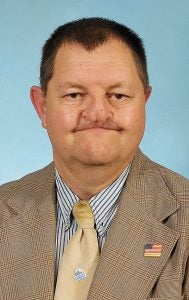
Kenny Book
KENNY BOOK
Kenny Book has served on the Winchester Board of Commissioners for more than 20 years.
He is the former owner of Book’s Bookkeeping and Tax Service, Inc. He retired May 31 after 38 years of doing taxes. Book has lived in Winchester for almost 54 years. He previously lived in Illinois. Book serves on the Generation Center board, Winchester-Clark County Parks and Recreation Board and Bluegrass Rails to Trails Board. He prevously served on the Clark County GIS Consortium, the Strode Creek Conservancy and Kentucky Waterways Alliance. He serves on the board of advisors for the Americal Biographical Institute.
Book received an associates degree in accounting and business administration in 1974 from Kentucky Business College in Lexington.
He is a former member of the National Assocaition of Tax Professionals and the American Institute of Professional Bookkeepers. He is an honorary member of the Kentucky Sheriff’s Association. He is a Kentucky Colonel and a notary.
Book and the former Betty Christy have two daughters, six grandchildren and two great grandsons and two great granddaughters.
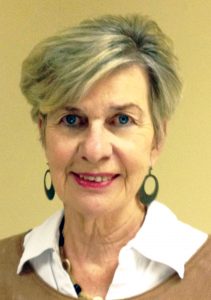
Kitty Strode
KITTY STRODE
Katherine Williams “Kitty” Strode is seeking a fourth term on the Winchester Board of Commissioners, to which she was first elected in 2011.
Strode has been employed by Keeneland and Churchill Downs for 37 years as a mutual clerk. She also previously worked for the tobacco market from 1976 to 2009.
She is a 1962 graduate of Henry Clay High School in Lexington and attended the University of Kentucky for two years. She is a member of Winchester First Christian Church.
Strode’s civic involvement includes the Bluegrass Heritage Museum Board of Directors, Winchester-Clark County Chamber of Commerce Board of Directors, United Way of the Bluegrass Executive Board, the Winchester Chamber of Commerce Board of Directors and the Winchester First Board of Directors.
Strode is the chairman of the Daniel Boone Pioneer Festival and the Downtown Winchester Beautification Committee and is vice chairman of the Winchester-Clark County Tourism Commission.
Strode has two children, Bradley and Shelby, and three grandchildren.
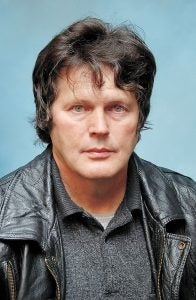
Ralph Harrison
RALPH HARRISON
Ralph Garrett Harrison, 64, is a self-employed businessman who sells cars and operates a two truck service. He first moved to Winchester in 1960. He has been married for 44 years and has four children and seven grandchildren.
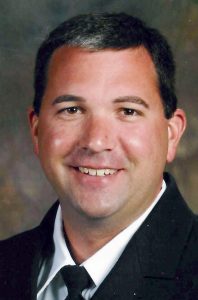
Ramsey Flynn
RAMSEY FLYNN
Ramsey Flynn is seeking his first term on the Winchester Board of Commissioners. He was employed by the City of Winchester for 20 years as a firefighter/EMT.
He is a 1993 graduate of George Rogers Clark High School. and attended Eastern Kentucky University where he studied in Fire Science and Engineering program.
He has two children, Tanner, 18, and Taylor, 17.
He is involved with the Bluegrass Heritage Museum, Heritage Commission, Winchester-Clark County Parks and Recreation Board of Directors and is Leadership Winchester Graduate.

Rick Beach
RICK BEACH
Rick Beach, of 230 West Hickman Street, is running for re-election to the Winchester Board of Commissioners. He is a businessman and Vice President of Rees Office Products, along with his wife Margie Rees Beach. Beach has worked in the business since 1986.
Prior to that time, he taught school in the Clark County school system (1976-86).
He is a graduate of Eastern Kentucky University (1976) with a B.S. degree in education. In 1979 he also earned a master’s degree in educational psychology.
He taught for 10 years at Fannie Bush Elementary, where he served as a fifth-grade, sixth-grade and gifted education teacher.
Beach has served on numerous educational, business, church and civic committees and boards. He is a board member and chairman of the original Operation Read Board, member of the Downtown Business Association, co-chairperson of the Christmas Parade Committee, member of the Winchester Ethics Board, member and past chairman of the Winchester-Clark County Chamber of Commerce, member of the Bluegrass Heritage Museum board, past treasurer of the Winchester-Clark County Citizens Against Drugs, member of the Winchester-Clark County Heritage Commission, a former member of the Winchester-Clark Generation Center Corporation and is a current member of the Martin Luther King Unity Committee.
Beach was born on Aug. 22, 1953, and is now serving his sixth term as a Winchester City Commissioner.
He is married to the former Marjorie Rees. They have two children and seven grandchildren.
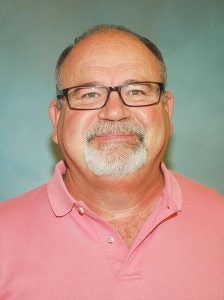
Shannon Cox
SHANNON COX
Shannon Cox attended Clark County schools and earned degrees from the University of Kentucky and Eastern Kentucky university. He has served on the Winchester Board of Commissioners for 18 years, including 11 and a half years as vice mayor. He retired after serving 32 years as a teacher and coach in Clark County. He is chair of the Winchester Salvation Army board and a member of the boards of Habitat for Humanity and Rose Mary C. Brooks Place. He also serves on the national League of Cities Institute for Youth, Education and Families.
The city recently invested $100,000 to develop a downtown master plan. How important do you think the downtown master plan is? What would you like to see done downtown and how do you plan make it happen?
KB: I think the downtown master plan is important. I would like to see a McDonald’s and a Subway located downtown. The Dairy Queen is doing a good business downtown and Speedway is doing a good business downtown. I was located downtown for almost 36 of my 39 years in all my businesses. We should write letters in support of the plan. We had a Subway downtown before and they did a good business. They could locate in the old Corner Drug Store building at the corner of North Highland and East Broadway. There is a drive-through window there.
KS: Downtown is the heart of every community. This plan is a proactive approach to help us prioritize, budget and plan as a community for shaping our downtown for years to come. We have one of three (I believe) intact elevated sidewalks in the state and that is a unique feaeture that can be transformed into something more functional, beautiful and attractive for development. This would be a starting point to move through the rest of our Main Street. We are also exploring how to create a variety of funding levels to assist those who want to invest in downtown to make a lasting impact on our historic buildings. These efforts will require many partnerships amongst the city, county, business and community organizations and individuals. Our downtown belongs to everyone and I want to make it a destination for all who live here and in the region.
RH: I’d like to see the whole downtown revitalized. We need people in the buildings running businesses and paying taxes to the City of Winchester. The city would work with business owners, see what their needs are and help them stay. When you do that, you have something to figure out.
RF: The downtown master plan is very important, to my understanding. After meeting with the city manager, the plan has not been presented. I do support improvements to our downtown to help our community and businesses, for Main street and our side streets, including the Lexington Avenue, Washington Street and Broadway Street areas. I feel that we need to get a plan started and come to an agreement with other commissioners that are elected.
RB: The downtown master plan should provide direction and insight into steps that can be taken to continue to improve the business growth and quality of life in downtown Winchester. My hope is that the study will build on the current successes in the downtown area which include: the Bluegrass Heritage Museum, Farmers Market on Depot Street, the Leeds Theater and numerous new and existing businesses.
SC: The Downtown Master Plan can serve as a source of ideas and provide new vitality for downtown. We also understand that it has to be flexible and it must take into account the views and feelings of the taxpayers. I would love to see a downtown with shops and businesses. I would like to come up with an incentive program to entice businesses to be downtown and promote entrepreneurship. We also need to develop a series of events that would make people want to come downtown after regular hours (concerts, events, etc.)
What is your perception of the business climate in Winchester, and how can it be improved?
KB: We should go after more sit-down restaurants and major department stores, like maybe Ollie’s, to locate in the CVS building after they build their new one.
KS: I believe our business climate has been steadily growing over the past few years. New industry locations, existing industry expansions. Small business and retail such as Rural King, Bojangles, Holiday Inn Express, the new Verizon building that is full, as well as several buildings that have been sold or renovated downtown with new tenants. We are always working on ways to improve how we work to encourage and promote new business here whether that is through improved signage, creative programs such as the tax increment finance program at the Winchester Plaza and just creating relationships to help those that want to do business here.
RH: You’ve got a Main Street but you don’t have the population on it. You need some incentives to draw people in, which is the businesses. We need some kind of product to draw people to those buildings. I don’t know about tax breaks for businesses and how that would work. If they get taxed so much, they can’t stay. On Main Street, we need personalized-type busineses that no one else in town is doing. That would bring you downtown.
RF: I think the business climate is good. We have some wonderful family-owned businesses that make us fortunate as a community. The master plan needs to be completed and presented. If I am elected as a city leader I will support local businesses of Winchester. It can be improved by increasing and supporting our tourism in Winchester.
RB: I believe the business climate is very good in Winchester and Clark County. The industrial and commercial businesses continue to grow. We have been blessed with many new industries and expansions of the existing. The city and county unemployment rate remains around 5 percent (based on the St. Louis Federal Reserve data). We need to continue to assist local business startups and support the retention of current small businesses. In my first run for city commission I supported the idea of using the assets of the Industrial Authority to assist both industrial and commercial development. That initiative began some years ago and we continue to develop and assist small businesses through the city and the Industrial Authority. The growth of the Farmers Market is an example of how local government can facilitate local business development.
SC: Winchester needs to promote itself. I would like to see a program to promote local businesses and have businesses promote each other. I would also like to wee us try to develop niche business that would cause customers to come to Winchester. We need to make Winchester a destination for customers.
What can be done to make city jobs more appealing or to fill the vacancies?
KB: We need to look at what we can do to get and keep paramedics. If we don’t get and keep paramedics, we could lose the ALS (advanced life support) status.
KS: We have some of the highest tenure rates for our city employees. We have filled many vacancies with quality people such as planning and zoning and the Winchester fire chief. We have a robust benefit/retirement plan for our employees and try to assist in wage increases whenever we possibly can.
RH: First thing is pay. That makes it more appealing to anybody. You can only fill vacancies if you have good pay.
RF: I can say being a retired city employee, that the City of Winchester is a great place for employment and career. The turn over is minimal in the all departments except in the fire department for paramedics. Paramedic turnover is a problem in ambulance services and fire departments all over the state of Kentucky.
Fire Chief Cathy Rigney and city officials are working to improve the turnover situation with paramedics at this time. There is not many employers that offer 95 percent health and dental insurance, that’s $107 a month for family and $36 a month for an individual. The city also has a health reimbursement account for the deductible and that account for family plan can have as much as $2,250 in it to help pay the family deductible. Also, the city is in the state retirement system. The salary for employees is within mid-to upper-range for a city the size of Winchester.
RB: In general the city’s workforce is stable. Employee retention in certain areas is more challenging. Throughout the state and region there is shortage of EMS paramedics which puts pressure on local governments to staff advanced life support services (ALS). Competitive pressure from other ALS services and hospitals makes employment and retention in this area challenging. Currently city staff is reviewing options to alleviate this situation. Providing competitive salaries and benefits to our employees is important. As a member of the city health insurance committee, I am pleased with the health insurance benefits we can provide each of our employees. During the last two budget cycles we have been able to provide across the board pay raises to our employees. We have also incentivized salary increases and job retention by promoting continuing education and training.
SC: We are looking at different ideas to make city jobs (especially paramedics) more attractive. We are looking at having medics be single purpose. We are also using part-timers and retirees to fill the void. We need to look at every idea.
The city’s tax rates have remained the same for many years. How would you keep taxes in check while continuing to provide needed services for residents?
KB: We need to do more work ourselves instead of contracting it out. Like Mount Washington does.
KS: We have a strong industrial tax base that provides so much to our bottom line. The success of recruiting 18 new companies along with 20 some existing industry expansions over the past several years have really made a difference. Those property and occupational taxes are used to keep our budget strong. Without this tax base, it would be much more difficult. We continue to work hard to attract and keep industry here in our community. But we do so much with what we have and we strive to be as efficient and prudent as possible with our tax dollars and mane important investments where and when we can that will have a lasting impact.
RH: That would be revenue from new businesses, not those here now paying a certain amount of tax. More new businesses with the same tax rate is more money without raising taxes on those that are here. We need new blood and you can keep the tax rate pretty much the same. It’s a tough situation, but you’ve got to add on, which the city’s done. A try is better than a straight line.
RF: The only way to keep tax rates in check and keep our services is to either cut budget or increase revenue. I feel before cutting the budget all opportunities need to be explored on increasing revenue first.
RB: Part of keeping taxes level is managing the city’s expenses and growing the local economy. The city’s staff along with the city commission have worked hard to utilize the resources we have available while at the same time providing essential services to the community. As we recruit and grow businesses we provide a revenue stream that helps pay for city services through payroll taxes and occupational license. This permits the city to minimize property tax increases. In addition, the city has utilized both government and private grant funding agencies to provide additional services and equipment. I would like to see the city hire a full time grant writer to assist in acquiring both private and government funding sources.
SC: As long as we have continued job growth that is providing us with the revenue we need to provide services, we are in good shape. We need to keep growing industry and going after high-paying jobs that keep our community prosperous. We have long had a policy of going after every employer, whether they be large or small.
What are the greatest challenges facing Winchester, and how are you qualified to address them as a city commissioner?
KB: The traffic on West Lexington Avenue and heavy truck traffic on Seventh Street and Magnolia Street. The need to develop commercial and the Veteran Memorial Parkway. That would help the traffic problems on West Lexington Avenue. We have done many drainage projects and just finished one on South Maple Street, and we are ready to get started on East Washington Street. We still have a lot of buildings that need to come down. We are addressing so many a year in the budget. If the property owners would take them down or fix them up, that would save the city $50,000 a year. I have experience since I have been serving as a city commissioner.
KS: I believe one challenge we face is the slow population growth. Another that is common in many communities is drug use. A third would be poverty. The two biggest factors that impact poverty are health and education.
These challenges we face affect everything from schools to workforce to business and family development. That is why we work to create jobs and bring new industry and expand existing industry. That is why we focus on making downtown a vibrant destination for people that live and visit here. That is why we invest in first class police, fire and emergency departments. That is why we invest in water, sewer, trash and recycling through Winchester Municipal Utilities. That is why we support our local health initiatives, schools and hospital. All of these challenges can be overcome but we have to be proactive and innovative and invest in these areas with our time and financial resources and work together as a whole community.
I am qualified because I have invested my time and resources in this community for the past four decades. I have served voluntarily and have been part of city government for the past six years. I believe that I take into consideration how our votes and action and involvement impact our entire community. I love this community and the people in it and have been willing to work hard to make a difference.
RH: The job thing is the biggest thing as far as the town. The second thing I recignize is the drug problem. We need to ask for some federal funds to try and figure it out. We can look at other towns and pick and choose on what will work. If you get the drug situation out of town, we’ll get more people in town. That really needs to be addressed over everything else.
RF: The biggest challenges for our city is bringing the community together and having careers for our children and future generations. I feel that I am qualified because as a firefighter for 20 years I have seen many different situations that have impacted our community.
RB: In my opinion, there are two significant challenges facing Winchester and Clark County. The opiate epidemic is affecting many families in our community. I am committed to supporting our local law enforcement in fighting the sale of illicit drugs. In addition, I will continue to use my personal and city commission influence to support efforts in rehabilitation. Secondly, there is a need for a well-trained and educated workforce. Although the city is not directly involved in education, I believe that it is important to support the local school system and the community college in training our citizens for the future.
SC: I think the biggest challenges in Winchester are the drug epidemic, jobs and housing. We need to continue and ramp up our efforts to battle drug use in our community. I need not be happy until we are drug free.
Winchester needs to do everything possible to make sure we have a qualified workforce with the skills necessary to do the high-paying jobs. Also we need to ensure we have the infrastructure (water, sewer, roads) that potential employers look for.
We also need to go after affordable housing and encourage in every way home ownership. I also want to see our Parks and Recreation Department grow and expand. We have the best parks department that any city around us does. I want to see us grow even larger and get even better. My experience, not only on the commission, but as an educator make me uniquely qualified and capable of addressing these issues.


